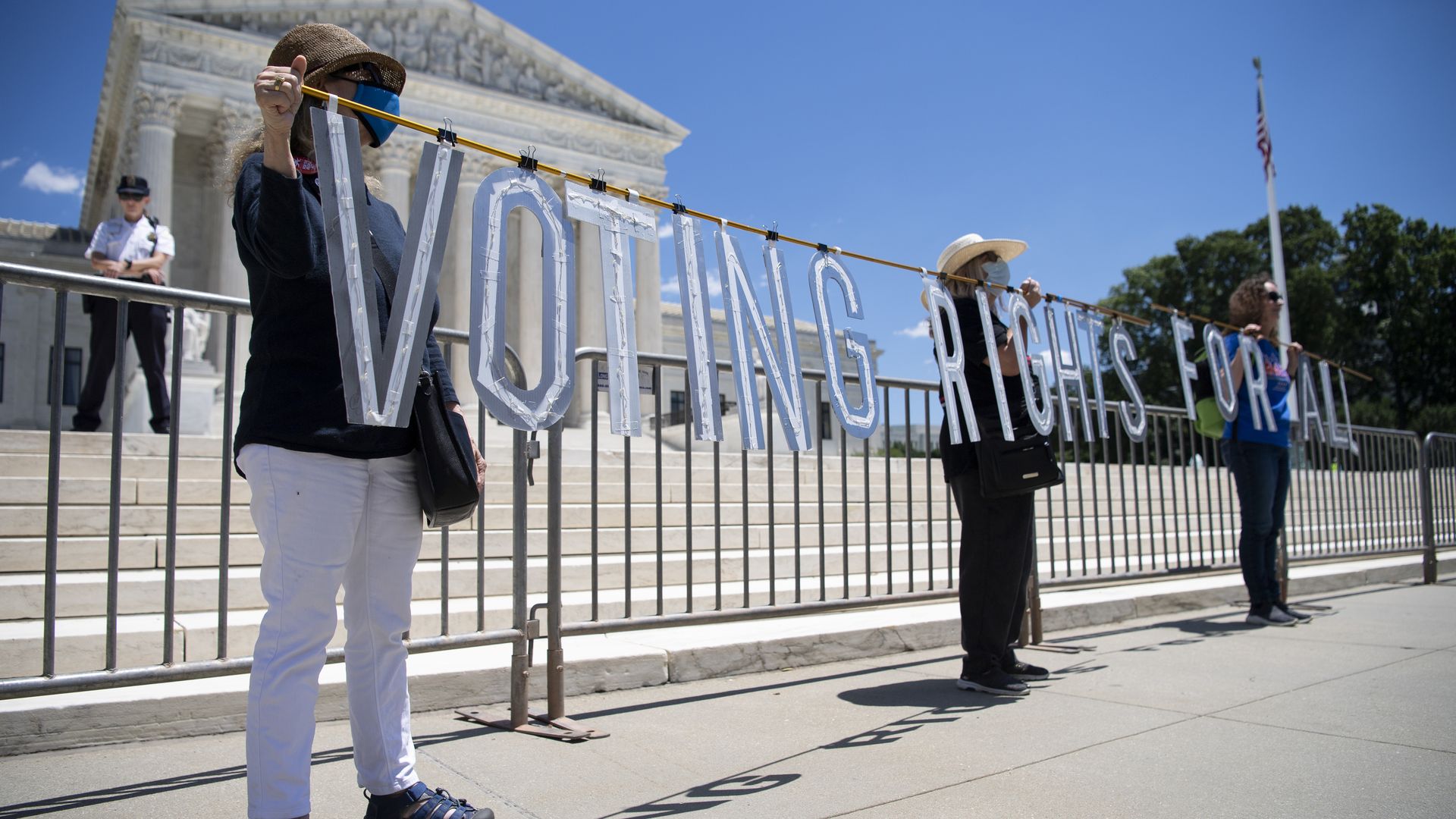Jul 2, 2021 - Politics & Policy
Poll: Americans more worried about restrictive voting laws than election fraud
Add Axios as your preferred source to
see more of our stories on Google.

People holding a sign that reads "Voting rights for all" in front of the Supreme Court building in Washington, D.C., in June 2021. Photo: Caroline Brehman/CQ-Roll Call, Inc via Getty Images
